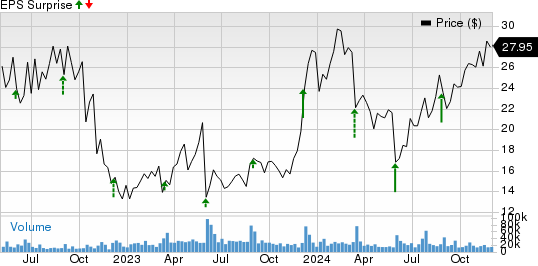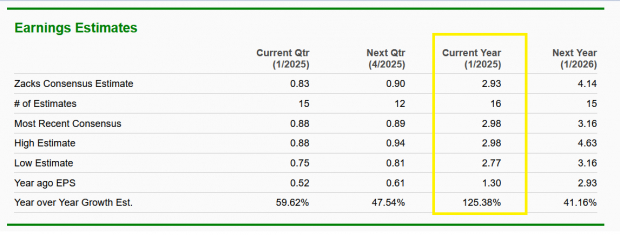In the world of financial markets, two prominent approaches to executing trades are principal trading and agency trading.
Principal trading involves brokerages using their own inventory of securities to complete customer trades, allowing them to profit from the bid-ask spread.
Agency trading, on the other hand, involves brokers finding counterparties for their customers' trades, potentially at other brokerages.
While principal trading aims to create profits for the firm's own portfolios, agency trading earns commissions or fees and provides liquidity to the market.
This article delves into the clash between principal trading and agency trading, exploring their differences in terms of risk, objectives, expertise, and the types of firms involved.
By understanding these distinctions, investors and market participants can make informed decisions and navigate the complexities of the financial industry.
Key Takeaways
- Principal trading involves a brokerage using its own inventory of securities to complete a customer's trade, while agency trading involves finding a counterparty for the customer's trade at another brokerage.
- Principal trading allows brokers to profit from the bid-ask spread and aims to create profits for the firm's own portfolios through price appreciation, while agency trading earns commissions or fees and provides liquidity to the market.
- Principal trading carries higher risk due to potential losses, as it uses the firm's own capital, while agency trading provides a service by executing trades on behalf of clients.
- Principal trading requires expertise in market analysis and timing, while agency trading requires strong relationships with clients and the ability to find a counterparty for the trade.
Overview of Principal Trading
In the realm of financial markets, principal trading operates through a brokerage using its own inventory of securities to execute trades for customers. This practice allows brokers to profit from the bid-ask spread and create profits for their own portfolios through price appreciation.
One of the pros of principal trading is that brokerage firms can earn extra income from the bid-ask spread. However, there are also cons to consider. Principal trading carries higher risk due to potential losses, and it requires expertise in market analysis and timing.
On the other hand, agency trading involves a brokerage finding a counterparty for the customer's trade, potentially at another brokerage. The risks involved in agency trading include the need for accurate bookkeeping, clearing, settlement, and reconciliation to ensure the smooth flow of the securities markets.
Advantages of Principal Trading
Principal trading offers several advantages for brokerage firms and investors alike.
One of the key advantages is the potential for higher profits. By using their own inventory of securities, brokerage firms can profit from the bid-ask spread, which is the difference between the buying and selling price of a security. This allows them to generate additional revenue and increase their overall profitability.
Additionally, principal trading allows firms to have more control over the execution of trades and reduces reliance on external counterparties. This can lead to faster execution times and potentially better prices for investors.
However, it is important to note that principal trading also comes with risks, such as market volatility and potential losses. Therefore, it is crucial for brokerage firms to have effective risk management strategies in place to ensure the rewards of principal trading outweigh the risks.
Overview of Agency Trading
To delve into the realm of agency trading, let us examine the fundamental principles and practices that distinguish this method from principal trading. Agency trading involves a brokerage finding a counterparty for the customer's trade, potentially at another brokerage. The broker must find someone willing to buy or sell the security at the same price as the counterparty. This method allows the broker to execute trades on behalf of clients and earn commissions or fees. The Depository Trust & Clearing Corporation (DTCC) plays a crucial role in agency trading as it handles the clearing and settlement of agency transactions. The DTCC acts as an intermediary, streamlining the transfer of stocks and cash and ensuring the smooth flow of the securities markets.
| Role of DTCC in Agency Trading | Risks of Principal Trading | |
|---|---|---|
| – Handles clearing and settlement of agency transactions | – Higher risk due to potential losses | |
| – Acts as an intermediary for the transfer of stocks and cash | – Requires expertise in market analysis and timing | |
| – Ensures the smooth flow of the securities markets | – Commonly practiced by proprietary trading firms | |
| – Involves trading with the firm's own capital |
Advantages of Agency Trading
Agency trading offers several benefits for both brokers and clients.
One of the advantages of agency trading is that it provides a higher level of transparency. When executing trades on behalf of clients, brokers are required to act in the best interest of their clients and provide them with the best available price. This ensures that clients receive fair and competitive pricing for their trades.
Additionally, agency trading eliminates potential conflicts of interest that may arise in principal trading, where brokers use their own inventory to complete trades. By acting as an intermediary, brokers can focus solely on finding the best counterparty for their clients, without the need to profit from the bid-ask spread.
This allows for a more objective approach to trading and enhances the trust and confidence clients have in their brokers.
Role of the Depository Trust and Clearing Corporation (DTCC)
The Depository Trust and Clearing Corporation (DTCC) plays a pivotal role in the clearing, settlement, and depository services for financial markets. Established in 1999, the DTCC is a holding company with five clearing corporations and one depository.
It handles trillions of dollars worth of securities transactions daily, enhancing efficiency and reducing risk in the financial industry. The DTCC acts as an intermediary, collecting all transactions and streamlining the transfer of stocks and cash.
Its impact on financial markets is significant, as it ensures the smooth flow of securities trades and provides a centralized platform for market participants to settle their obligations.
Understanding the Role of a Stockbroker
Stockbrokers act as intermediaries between investors and the financial markets. They execute trades and provide investment advice and recommendations. They play a crucial role in facilitating transactions and helping clients make informed investment decisions.
Stockbrokers primarily engage in agency trading, which involves finding a counterparty for the customer's trade. This can potentially be at another brokerage. Unlike principal trading, where a brokerage uses its own inventory to complete a customer's trade, stockbrokers primarily earn commissions or fees for executing trades on behalf of clients.
Principal trading carries higher risk due to potential losses. In contrast, agency trading provides liquidity to the market and requires strong relationships with clients. Stockbrokers must be licensed and adhere to regulatory standards to ensure the protection of investors' interests.
Frequently Asked Questions
How Does Principal Trading Affect the Bid-Ask Spread?
Principal trading directly impacts the bid-ask spread by allowing brokerages to profit from the difference between the buying and selling prices. However, it also carries higher risks due to potential losses from market movements.
What Are Some Potential Risks Involved in Principal Trading?
Potential risks involved in principal trading include market impact, as large trades can move prices. There is also the risk of losses due to adverse price movements and the need for accurate market timing.
Can Brokerage Firms Engage in Both Principal Trading and Agency Trading?
Yes, brokerage firms can engage in both principal trading and agency trading. Principal trading involves using the firm's own capital to trade securities for profit, while agency trading involves executing trades on behalf of clients for commissions or fees.
How Does Agency Trading Provide Liquidity to the Market?
Agency trading provides liquidity to the market by finding counterparties for client trades. This helps to ensure that there is enough buying and selling activity, reducing market impact and improving execution speed for investors.
What Are the Regulatory Standards That Stockbrokers Must Adhere To?
Stockbrokers must adhere to regulatory standards, which include regulatory compliance and investor protection. These standards ensure that brokers operate within the law, provide accurate information to clients, and act in their best interests, promoting transparency and trust in the financial industry.





Your point of view caught my eye and was very interesting. Thanks. I have a question for you.
Thank you for your sharing. I am worried that I lack creative ideas. It is your article that makes me full of hope. Thank you. But, I have a question, can you help me?
Your point of view caught my eye and was very interesting. Thanks. I have a question for you.
Your point of view caught my eye and was very interesting. Thanks. I have a question for you.
Your point of view caught my eye and was very interesting. Thanks. I have a question for you.
Can you be more specific about the content of your article? After reading it, I still have some doubts. Hope you can help me.
I don’t think the title of your article matches the content lol. Just kidding, mainly because I had some doubts after reading the article.
Thanks for sharing. I read many of your blog posts, cool, your blog is very good.
Thanks for sharing. I read many of your blog posts, cool, your blog is very good.
Thanks for sharing. I read many of your blog posts, cool, your blog is very good.
I like this blog it’s a master piece! Glad I observed this
ohttps://69v.topn google.Blog monetyze
I don’t think the title of your article matches the content lol. Just kidding, mainly because I had some doubts after reading the article.
Your point of view caught my eye and was very interesting. Thanks. I have a question for you. https://www.binance.com/zh-CN/join?ref=VDVEQ78S
Your point of view caught my eye and was very interesting. Thanks. I have a question for you. https://accounts.binance.com/sl/register?ref=PORL8W0Z
I don’t think the title of your article matches the content lol. Just kidding, mainly because I had some doubts after reading the article.
What if i created a blog with the same name as other blog accidentally? is that legal?
I don’t think the title of your article matches the content lol. Just kidding, mainly because I had some doubts after reading the article. https://accounts.binance.com/ar-BH/register?ref=V2H9AFPY
Can you be more specific about the content of your article? After reading it, I still have some doubts. Hope you can help me.
I don’t think the title of your article matches the content lol. Just kidding, mainly because I had some doubts after reading the article.
Thank you for your sharing. I am worried that I lack creative ideas. It is your article that makes me full of hope. Thank you. But, I have a question, can you help me?
Can you be more specific about the content of your article? After reading it, I still have some doubts. Hope you can help me. https://accounts.binance.com/sl/register?ref=PORL8W0Z
You are a very intelligent person!
Thanks for sharing. I read many of your blog posts, cool, your blog is very good.
hey there and thank you for your information – I have definitely picked
up something new from right here. I did however expertise several technical points
using this site, as I experienced to reload the web site lots of times previous
to I could get it to load correctly. I had been wondering if your web
host is OK? Not that I’m complaining, but sluggish loading
instances times will very frequently affect your placement in google and can damage your quality score
if advertising and marketing with Adwords. Anyway I am adding this RSS to my email and
could look out for much more of your respective fascinating content.
Ensure that you update this again very soon.!
Good day! Do you know if they make any plugins to assist with SEO?
I’m trying to get my blog to rank for some targeted keywords
but I’m not seeing very good gains. If you know of any please
share. Thank you! You can read similar article here: Eco wool
I like this web blog so much, saved to my bookmarks. “Nostalgia isn’t what it used to be.” by Peter De Vries.
I was reading some of your posts on this internet site and I believe this internet site is very informative ! Retain posting.
They don’t seem to be.
Your point of view caught my eye and was very interesting. Thanks. I have a question for you.
Thanks for sharing. I read many of your blog posts, cool, your blog is very good.
Thanks for sharing. I read many of your blog posts, cool, your blog is very good.
Your point of view caught my eye and was very interesting. Thanks. I have a question for you.
Your article helped me a lot, is there any more related content? Thanks!